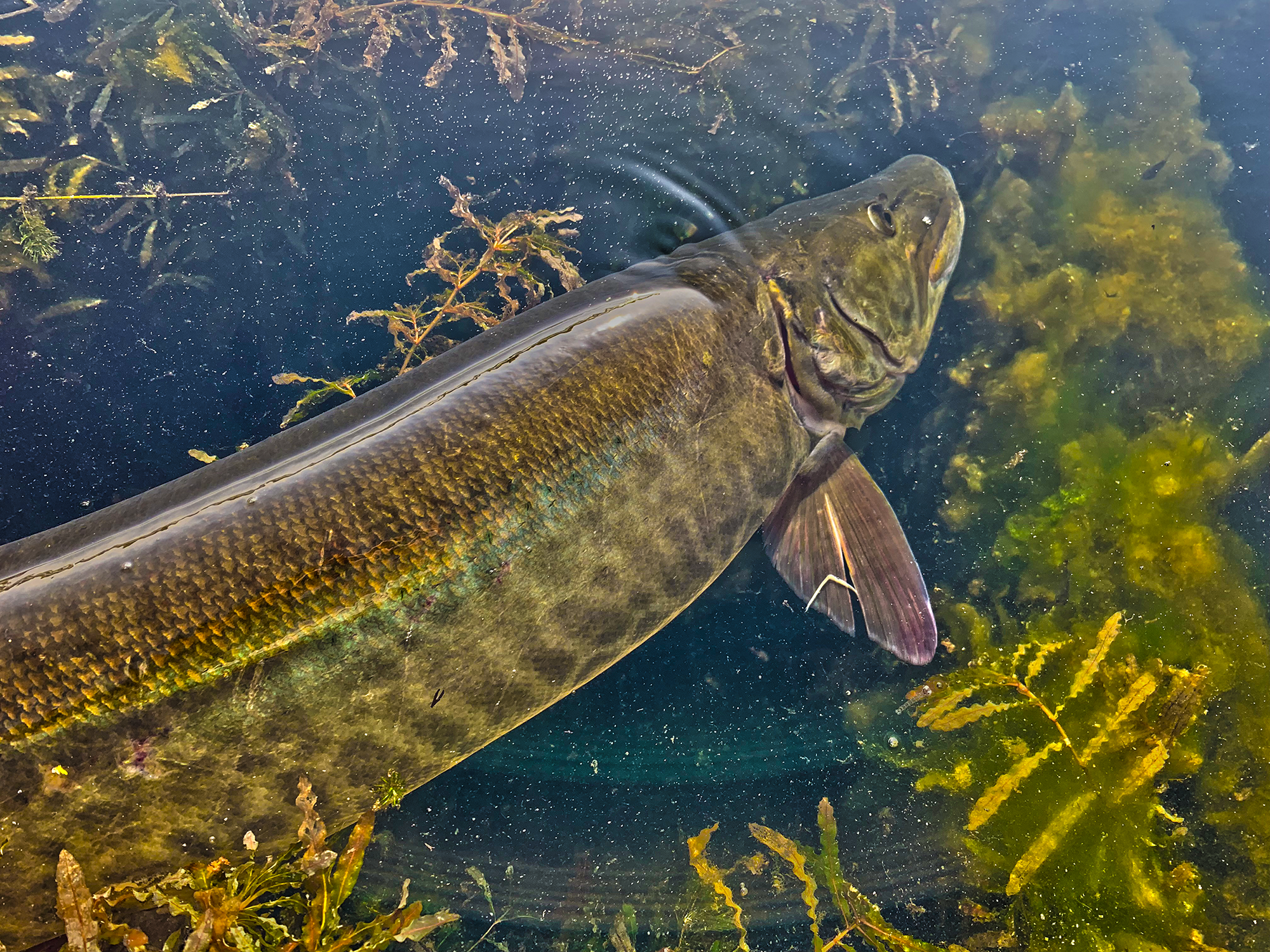The muskellunge, or musky for short, is a popular game fish that is highly sought after by anglers and is growing in popularity. Known for their impressive size, strength, and fighting ability, muskies can be challenging to catch and provide a thrilling experience for those lucky enough to land one. However, there is a concerning issue that has been observed in musky fishing: delayed mortality.

Delayed mortality refers to the phenomenon where fish that appear to be healthy and released after being caught later die due to stress and other factors associated with the fishing process. This is a serious concern for the musky population, as these fish are known to have a low reproductive rate and long lifespans, making them particularly vulnerable to overfishing and other threats.
The musky’s susceptibility to delayed mortality is likely due to a combination of factors, including the stress of being caught, handling and hooking injuries, and exposure to air and warm water temperatures. After being caught, muskies may experience physical as well as physiological stress that can compromise their immune systems and make them more vulnerable to disease and parasites. Additionally, if they are not properly handled and released, they may suffer injuries to their mouth, gills, or internal organs, which can further compromise their health.

To reduce the risk of delayed mortality in muskies and protect their populations, anglers can take several steps. First, they should use appropriate gear and techniques to minimize the amount of time it takes to land and release the fish. This may include using a large net, heavy tackle, barbless hooks, hook cutting tool, extended pliers, jaw spreaders, and quick-strike rigs. Anglers should also avoid removing the fish from the water or handling it excessively, as this can increase the risk of injury or stress. Instead, quickly remove the hook and if possible, measure the fish in the net (also in the water). If holding the fish for a picture, have the camera nearby and ready. The subsequent goal after catching the fish should be to release it back into the water as soon as possible.

Another step to reduce the risk of delayed mortality is to simply avoid musky fishing when water temps are near 80 degrees or more. With the higher temperatures, muskies are feeding more often due to their higher metabolism. In order to remain healthy, they will need to exert more energy searching and chasing baitfish than in coolers months. This could be a time in which muskies are caught by mistake more often when anglers are targeting different fish species. If caught by mistake, they will need just as much care and handling to protect the population.
In addition to these measures, there are several conservation efforts underway to protect musky populations and reduce the impact of delayed mortality. These include the implementation of size limits and catch-and-release regulations, as well as the stocking of hatchery-raised muskies to supplement populations. Some fisheries management agencies also conduct research to better understand the factors that contribute to delayed mortality and develop strategies to mitigate its effects.
In conclusion, delayed mortality is a serious concern for musky populations and the anglers who pursue them. By taking appropriate measures to reduce stress and injuries during the fishing process, and supporting conservation efforts to protect and sustain these fish populations, we can ensure that muskies remain a vital and healthy part of our aquatic ecosystems for generations to come.

